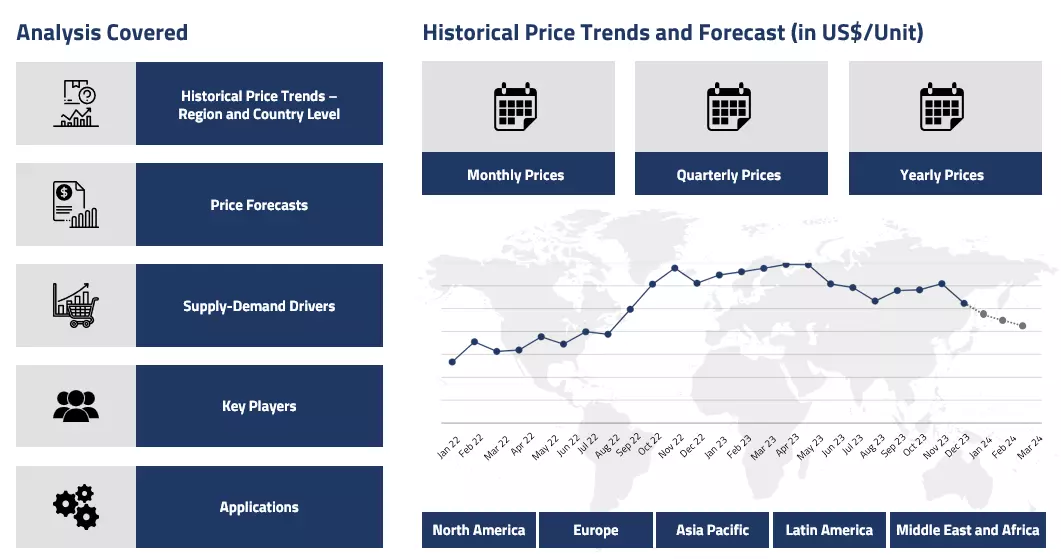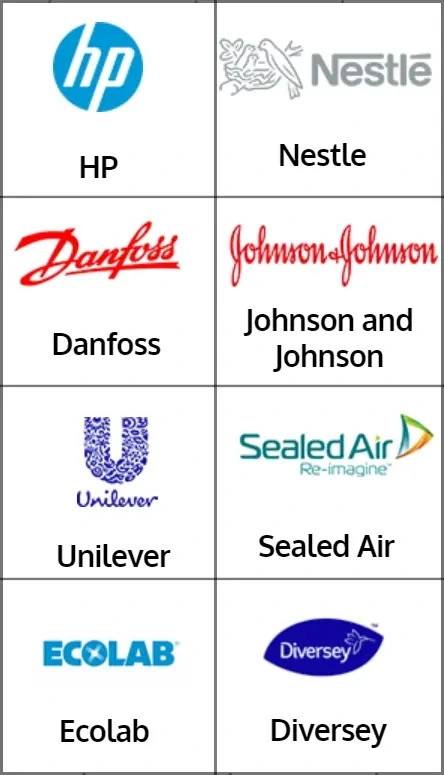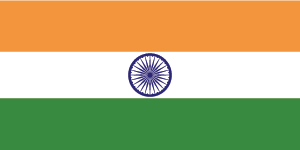Product
Labour Wages Trend
Labour Wages Trend
Labour Regional Wages Overview
Get the latest insights on price movement and trend analysis of Labour Chemical Plant in different regions across the world (Asia, Europe, North America, Latin America, and the Middle East & Africa).
Labour Cost Trend for the First Half of 2025
In the first half of 2025, labour costs followed a mixed trend globally, shaped by shifting economic conditions, inflationary pressures, and uneven recovery across regions. Many advanced economies saw slight increases in real wages, especially where inflation had eased, and productivity had improved. However, the gains were not universal. In most low-income countries, wage growth remained stagnant, as weak employment creation and declining labour force participation weighed down labour market performance.
Labour Wages Chart

Please Login or Subscribe to Access the Labour Wages Chart Data
Young people, particularly in low- and middle-income regions, continued to face high unemployment, further limiting wage pressure from that demographic. Informal employment remained high, especially in developing economies, with working poverty returning to pre-pandemic levels. This limited overall wage improvements as many workers remained outside formal protection or wage structures.
In countries like India, wage structures stayed complex and varied across states. Labour costs remained competitive but faced upward pressure due to inflation adjustments and skill-based wage revisions. While minimum wage enforcement remained a challenge, discussions around implementing a national living wage continued, signalling a potential shift in future wage floors.
At the same time, high-income countries experienced increased labour force participation among older workers and women, contributing to stable wage levels. However, gender gaps persisted, especially in access to formal employment, which constrained labour market inclusiveness and wage equality.
Analyst Insight
According to Procurement Resource, Labour Costs are expected to rise gradually in the second half of 2025, especially in digital and green sectors, but uneven global recovery and structural inequalities may continue to limit broad-based wage growth.
Labour Cost Trend for the Year 2024
In 2024, labour costs continued to rise steadily across multiple economies, driven by a mix of inflation-linked wage adjustments, policy shifts, and broader economic pressures. Many governments, particularly in Europe and North America, raised minimum wages in line with consumer price inflation to help workers keep up with the cost of living. This was especially evident in regions like Ontario and the UK, where efforts were made to transition toward more genuine living wages.
Across the Eurozone, there were temporary boosts to economic activity such as from the Olympics in Paris that added momentum to business performance. However, these gains were short-lived and didn’t significantly shift the overall labour market trend, which remained relatively soft. Employment growth slowed in parts of the US, where job openings fell to multi-year lows, and manufacturing jobs declined due to strikes and weather-related disruptions. While wage growth persisted, hiring cooled in several sectors, especially those affected by industrial action and production halts.
At the same time, global efforts to phase out age-related wage disparities and implement fairer pay structures gained traction. These shifts contributed to labour costs rising more broadly across age groups, with employers adjusting pay practices to comply with new regulations and expectations.
Overall, the increase in labour costs reflected not just inflationary pressure, but also a stronger push toward equity and protection for low-income and young workers, despite slower job growth in some sectors.
Analyst Insight
According to Procurement Resource, Labour Costs are expected to rise further in 2025 as policy reforms continue and workers demand fairer compensation amid ongoing cost-of-living pressures.
Labour Cost Trend for the Year 2023
In 2023, labour costs continued to rise across Europe, following the upward trend from 2022. Many EU countries saw increases due to the phasing out of COVID-era government support schemes, which had previously offset a portion of employment costs. This shift contributed to employers bearing the full weight of wages and social contributions again.
Countries in Eastern Europe, like Bulgaria, Hungary, and Romania, experienced the sharpest increases as they aimed to catch up with Western counterparts. Meanwhile, Western and Northern European countries still held the highest overall labour costs.
The services and construction sectors saw notable increases, driven by inflationary pressures and a growing demand for skilled workers. Despite easing inflation, wages had to rise to help workers keep up with the cost of living, especially in lower-paying sectors. However, non-wage costs, like employer social contributions, remained a significant share of total labour costs in some countries, further pushing up the overall cost for businesses. The cost-of-living crisis, although easing slightly, continued to impact low-wage workers the hardest, prompting more attention to real living wages across Europe.
Analyst Insight
According to Procurement Resource, Labour Costs are expected to keep rising moderately as economies stabilize, but cost pressures and wage demands will likely remain high in lower-income regions.
Labour Cost Trend for the Year 2022
In 2022, labour costs continued to rise across many regions, driven by multiple global factors. Recovery from the COVID-19 pandemic pushed businesses to rehire and rebuild, which increased demand for workers.
However, supply chain issues, inflation, and worker shortages in some sectors placed additional pressure on wages. Employers in industries like construction and healthcare faced growing challenges as wages climbed, while price increases in essential goods and services made real wage growth feel stagnant for many workers.
Across Europe, countries like Lithuania and Poland experienced sharp increases in hourly labour costs, reflecting both economic growth and the gradual end of pandemic-era wage subsidies. At the same time, wage disparities between countries remained wide, with Western and Northern European nations still far ahead of Eastern counterparts.
In places like Iraq and Bahrain, labour markets were affected by low participation rates, especially among women and youth, and a high share of informal employment, which kept average earnings low. In the UK and other advanced economies, rising inflation outpaced wage growth, reducing workers' purchasing power.
Analyst Insight
According to Procurement Resource, Labour Costs are expected to keep rising moderately as economies stabilize, though inflation, automation, and health system pressures will continue to shape wage trends worldwide.
Labour Wages Trend (Q4 2021)
Asia
The level of VDA for 1.5 million central sphere employees was altered by the Ministry of Labor and Employment in the fourth quarter of 2021. Workers in the core sphere saw a raise in their take-home pay on October 1st as a result of the boost. Skilled factory workers in New Delhi, India would be paid 749 INR/day starting in October 2021. In Bihar, the daily rate was fixed at 301 INR.
Europe
Workers in the European Union saw their earnings rise 2.8 % year-over-year in the fourth quarter of 2021. In January 2022, the minimum salary in EU Member States ranged from Bulgaria's 332 EUR/month to Luxembourg's 2257 EUR/month.
North America
The min. salary in the United States was raised in the final quarter of the year. Those on the minimum wage in the United States will get a boost in 2022. 21 states and 35 communities in the United States implemented new minimum wage laws in January 2022.
According to the National Employment Law Project, this was the largest increase in sub-national minimum wage regulation in the history of the United States. California and New York enacted statewide minimums of USD 15 an hour, while most states saw their minimum wage rise to USD 10 or USD 13 an hour.
Latin America
The minimum wage in the LATAM region varies greatly from country to country. While basic commodities and services were easily accessible to a Chilean worker on a minimum wage, a Venezuelan worker would have needed 156 such salaries to obtain the most basic core diet items.
Argentina's minimum wage was 31,938 Pesos in November 2021. November's 2.6% increase in the cost of basic food items meant that the cost of living for an adult and a child would rise to roughly 31,724 Pesos, a month's wages, for a household of two adults and two school-aged children.
Labour Wages Trend (Q1-Q3 2021)
Asia
At 178 INR/day for most of the first quarter of 2021, India's National Floor Level Minimum Wage (NFLMW) remained the same as in 2020. However, everything changed in the second half of March 2021. Government of India officials released and altered a new rate of Variable Dearness Allowance, effective April 2021, at a time when the country was coping with the second wave of COVID-19.
Using the Labor Bureau's Consumer Price Index for factory workers, the VDA is revised monthly (CPI-IW). CPI-IW averages were used to derive the most recent VDA revision, which was based on data from July 2019 through December 2020. Around 1.50 million workers in central sector occupations across the country were aided by this. An industrial worker who was highly competent was entitled to a minimum of 853 INR/day under this scheme; an unskilled worker was entitled to 645 INR/day.
Europe
As a result of COVID-19's rollout across the EU Member States in 2020, authorities responsible for setting the minimum wage faced a challenging issue. The majority of European countries agreed to modest increases in their statutory the salaries beginning in January 2021 in response to rising unemployment, acute economic instability, and the disruption of customary negotiation and consultation processes. Six countries in Central and Eastern Europe raised their minimum wages by more than 5%.
Among them were countries such as Latvia and Slovenia as well as Poland, Slovakia, Bulgaria, and Lithuania. Member nations with a longer history of membership (such as Portugal) and those with lower populations (such as the Netherlands) saw their populations grow by a lesser margin. If yields had been expressed in euro instead of British pounds, the 2.2% increase would have amounted to more than 6%.
North America
Despite the severity of the disturbance to the US labour market caused by the coronavirus epidemic, employed workers' earnings remained relatively stable. The COVID-19 recession resulted in a rise in the U.S. median wage, as lower-paid workers were laid off.
During the outbreak, wages remained steady, in part because lower-salary workers were more likely to lose their jobs. Consequently, in 2021, the average employed individual earned more than the average hired employee. Reduced inflation in 2021 boosted all workers' purchasing power by raising their incomes. For several quarters prior to the second wave of the coronavirus pandemic, the median hourly pay in the United States was approximately 21 USD.
Latin America
It was agreed upon by the government of Argentina in 2021 that there would be a 52.7 % year-on-year increase in wages to 33,000 Pesos in 2021. Until May 1, 2021, Chile's minimum monthly wage for workers aged 18 to 65 was 337,000 Pesos, while the rate for those 65 and above was 251,394. On September 1, 2020, the minimum salary was set at 326,500 pesos, with an increase of 10,500 pesos per month scheduled for May 2021.
Labour Wages Trend Overview 2020
Asia
With a national minimum wage of about INR 176 (USD 2.80) per day, or about INR 4,576 (USD 62) per month, India has Asia's lowest cost of labour. This was a federally mandated minimum wage, but it differed by location and other variables. In a broader sense, a study of typical monthly wages around the world found that Indians take home INR 32,800 (USD 437) on average.
Components such as the change in the Consumer Price Index (CPI) and, if available, a home rent allowance, are taken into consideration when calculating the monthly minimum salary (HRA). Government inspectors were retrained to serve as facilitators, and their job was to ensure that firms were following the new wage law.
Europe
There was a rise in the statutory min. salary for 2020 in the majority of EU countries in June 2020. In many cases, this increase was large (11%). Overall, the min. tax rates in every EU Member State rose in comparison to this time last year. Year-on-year increases varied from 17% in Poland (EUR 523-611) to 1.2% in France (EUR 1,521-1,539), while prices in Latvia were stable. Gross minimum salary in Portugal rose by 8.4% to EUR 740.
North America
Salaries in the United States climbed at a historically high rate, 6.9 % for the average worker, between 2019 and 2020, but it was not for the better. In 2020, the US economy took a hit unlike anything seen in recent memory. More than 80 % of the 9.6 million net job losses in 2020 were held by wage employees in the bottom 25 % of the pay gap, which increased wages significantly.
More than a million jobs in the middle and upper classes were created while 7.9 million low-wage people quit the economy. Economic overheating was not a cause for celebration, and wage inflation in 2020 was not an excuse to inject policy debates with anxiety.
Because of decades of low wage growth, the majority of workers had a weak negotiating position and were unable to secure raises sufficient to make up for that. For low-wage workers, this pandemic-induced economic collapse was more challenging than earlier recent recessions since they were still in need of support.
More than 90 % of high-paid workers in the top 25 % of the wage distribution will be employed in 2020, compared to fewer than 75 % of low-income workers. The low-wage labour market peaked in 2020, and wages rose as a result.
Latin America
After going up to 16,875 Pesos (USD 229.4) per month on October 1, 2019, the statutory monthly min. salary in Argentina has been set at 1,15 USD per hour. The federal min. salary was raised to 1,045 Reais (USD 186) per month in April 2020 to account for inflation. Only a few small local businesses really followed through on this mandated monthly min. salary.
As a matter of public policy or to comply with the requirements of the appropriate collective bargaining agreement, large firms and multinational organisations paid employees more than the minimum wage. Toward the end of April 2020, the Chilean government passed a bill granting 300,000 Pesos a month in subsidies to employees earning less than Pesos 384,363 a month in response to the covid-19 crisis. Colombia's minimum wage was 877,802 Colombian Pesos per month.
Procurement Resource provides latest prices of Labour Chemical Plant. Each price database is tied to a user-friendly graphing tool dating back to 2014, which provides a range of functionalities: configuration of price series over user defined time period; comparison of product movements across countries; customisation of price currencies and unit; extraction of price data as excel files to be used offline.
About Labour Wages
This refers to the manpower required to operate the chemical plant. The cost is estimated from an average of the number of shifts and days a personnel is required, based on his/her experience with similar processes. In general, chemical plants do not employ many people and the direct overhead charges would add 21 to 32% to the plant operation cost.
Labour Wages Details
| Report Features | Details |
| Product Name | Labour Chemical Plant |
| Region/Countries Covered | Asia Pacific: China, India, Indonesia, Pakistan, Bangladesh, Japan, Philippines, Vietnam, Iran, Thailand, South Korea, Iraq, Saudi Arabia, Malaysia, Nepal, Taiwan, Sri Lanka, UAE, Israel, Hongkong, Singapore, Oman, Kuwait, Qatar, Australia, and New Zealand Europe: Germany, France, United Kingdom, Italy, Spain, Russia, Turkey, Netherlands, Poland, Sweden, Belgium, Austria, Ireland Switzerland, Norway, Denmark, Romania, Finland, Czech Republic, Portugal and Greece North America: United States and Canada Latin America: Brazil, Mexico, Argentina, Columbia, Chile, Ecuador, and Peru Africa: South Africa, Nigeria, Egypt, Algeria, Morocco |
| Currency | US$ (Data can also be provided in local currency) |
| Supplier Database Availability | Yes |
| Customization Scope | The report can be customized as per the requirements of the customer |
| Post-Sale Analyst Support | 360-degree analyst support after report delivery |
Note: Our supplier search experts can assist your procurement teams in compiling and validating a list of suppliers indicating they have products, services, and capabilities that meet your company's needs.
Methodology
The displayed pricing data is derived through weighted average purchase price, including contract and spot transactions at the specified locations unless otherwise stated. The information provided comes from the compilation and processing of commercial data officially reported for each nation (i.e. government agencies, external trade bodies, and industry publications).
Assistance from Experts
Procurement Resource is a one-stop solution for businesses aiming at the best industry insights and market evaluation in the arena of procurement. Our team of market leaders covers all the facets of procurement strategies with its holistic industry reports, extensive production cost and pre-feasibility insights, and price trends dynamics impacting the cost trajectories of the plethora of products encompassing various industries. With the best analysis of the market trends and comprehensive consulting in light of the best strategic footstep, Procurement Resource got all that it takes.
Client's Satisfaction
Procurement Resource has made a mark for itself in terms of its rigorous assistance to its clientele. Our experienced panel of experts leave no stone unturned in ensuring the expertise at every step of our clients' strategic procurement journey. Our prompt assistance, prudential analysis, and pragmatic tactics considering the best procurement move for industries are all that sets us apart. We at Procurement Resource value our clients, which our clients vouch for.
Assured Quality
Expertise, judiciousness, and expedience are the crucial aspects of our modus operandi at Procurement Resource. Quality is non-negotiable, and we don't compromise on that. Our best-in-class solutions, elaborative consulting substantiated by exhaustive evaluation, and fool-proof reports have led us to come this far, making us the ‘numero uno' in the domain of procurement. Be it exclusive qualitative research or assiduous quantitative research methodologies, our high quality of work is what our clients swear by.
Table Of Contents
Our Clients

Get in Touch With Us

UNITED STATES
Phone:+1 307 363 1045

INDIA
Phone: +91 8850629517

UNITED KINGDOM
Phone: +44 7537 171117
Email: sales@procurementresource.com

